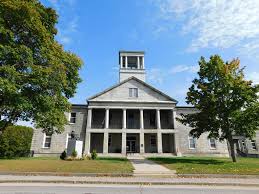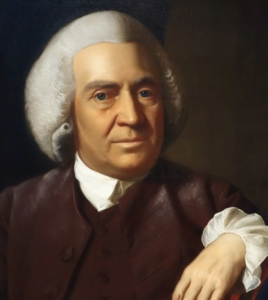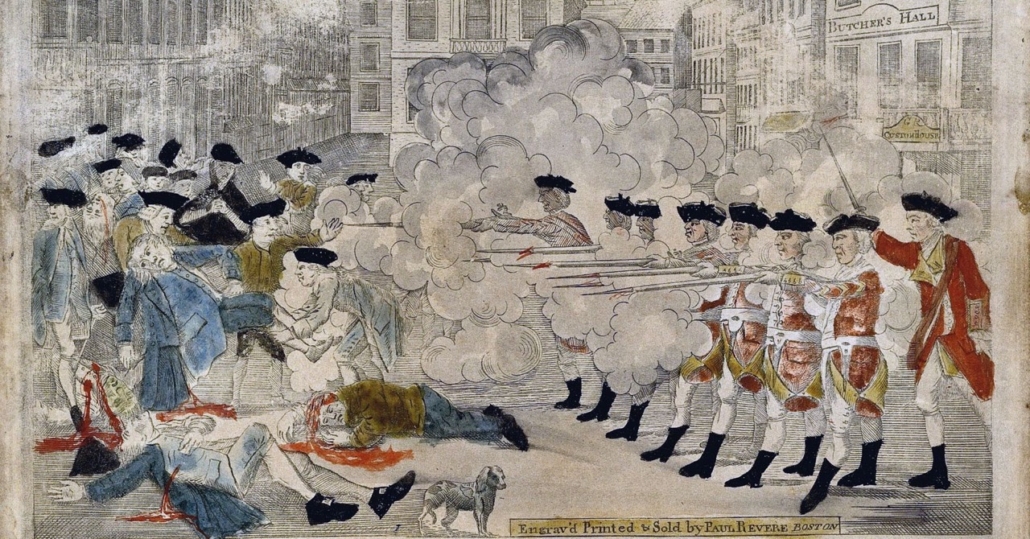Up and Down the Kennebec Valley: 19th century lawyers
by Mary Grow
Winslow wasn’t the only small town in this section of the Kennebec River valley with its own 19th-century lawyer(s), though no other seems to have been as conspicuous as Eleazer Ripley (see The Town Line, May 8, 2025, page 10).
Or maybe many were, and appear less known and important now only because of lack of information. A legal case that in 1825 enthralled an entire town and determined the futures of a dozen people might be completely forgotten by 2025.
Several local lawyers practiced in more than one town; and often, a lawyer who started in a small town would gravitate to Waterville or Augusta (or a more distant city). Your writer is reminded, again, that in the 1800s a trip from Sidney or China to a courthouse in Augusta or Waterville was not the casual undertaking that it is today.
This week’s article will offer information on three lawyers who, James W. Bradbury wrote in Henry Kingsbury’s 1892 Kennebec County history, practiced in the small town of China. The first two lived in China Village, in the north end of town.
* * * * * *
Chronologically as well as alphabetically, lawyer Abisha Benson comes first. He arrived in China in or before 1817, the China bicentennial history says (it does not say where he came from). Bradbury said he was practicing in China Village in the 1820s; two nephews, brothers Samuel Page Benson and Gustavus Benson, studied with him after Samuel graduated from Bowdoin College in 1825.
(Samuel and Gustavus were sons of a pre-1810 settler in Winthrop, a doctor named Peleg Benson. Bradbury wrote that Samuel opened his law practice in Winthrop in 1829 and was Maine’s secretary of state in 1838 and 1841 and a two-term Congressman in 1853 and 1855. He said nothing more about Gustavus.)
Of Benson’s law cases, your writer found no record. He left traces in town records as an apparently trusted and useful citizen.
Between 1819 and 1824 one of the topics at China town meetings (then held up to five times a year) was maintenance of the bridge across the stream feeding into China Lake’s east basin, just east of China Village. The history says an April 3, 1820, town meeting authorized paying Jacob McLaughlin $10 for a year’s repairs; a Nov. 6 meeting awarded a 10-year repair contract to low bidder, Benjamin Lewis, for $178.
On June 18, 1821, voters decided to review the Lewis contract and appointed lawyer Benson and two other men “to ‘examine’ the bridge and the contract.” In September, Lewis accepted a replacement seven-year contract. After more discussion, in which Benson’s participation is not recorded, in March, 1824, voters appropriated $694 for a new bridge.
In 1825, Benson was chosen a member of a larger committee to investigate whether China should create a poor farm to house paupers. The committee’s report, if any, is not recorded, the bicentennial history says; not until 1845 did China establish its poor farm.
The China history identifies Benson as a Mason, the first Master of Central Lodge, No. 45, in China Village. The Lodge’s charter was requested at a Dec. 27, 1823, meeting, and was approved April 8, 1824; Benson is listed as master from December, 1823, to June, 1826.
In March, 1827, Central Lodge members voted gifts of money to four members, including G. A. Benson (probably Abisha’s nephew) and J. H. Benson, “in consequence of their loss in the late fire.” The bicentennial history offers no additional information.
* * * * * *
Lawyer Alfred Fletcher, according to Bradbury’s summary, was a China native, born in 1818 (according to Find a Grave, Aug. 31, 1817). He was a Bowdoin College graduate. He read law with Sandford (elsewhere Sanford) A. Kingsbury “and practiced in China all his life.”
Fletcher first appears in the China bicentennial history in 1850, after almost 20 years of renewed public discussion of that bridge at the head of China Lake’s east basin that had taken some of Abisha Benson’s time in 1821.
The series of events Fletcher got involved in started with a special town meeting in the spring of 1831, at which voters appointed a bridge committee (unnamed in the history); recessed for 20 minutes while members reached a recommendation; and approved spending $800 to elevate their almost-new bridge by two feet.
The reason, as rediscussed at a Sept. 12, 1831, meeting, was that the Vassalboro mill owners who owned the China Lake outlet dam in East Vassalboro were keeping the lake’s water level so high as to repeatedly damage the bridge. The controversy continued through the summer of 1834, then disappeared from town records until May 19, 1843.
That day, town meeting voters appointed S. A. Kingsbery (probably lawyer Sanford Kingsbury) as one of two “agents” to either sue or make an agreement with the Vassalboro mill owners, and appropriated $149.50 for repairs. Discussions were suspended that fall, because, according to a resolution adopted at a September town meeting, there wasn’t much damage the previous spring; and “it is uncertain whether property can be found to respond [to] any verdict for damages that might be obtained.”
A June 1850 town meeting discussion led to the appointment of the committee Fletcher served on. Its assignment was to consider options: sue Vassalboro millowners, negotiate with Vassalboro millowners, repair the bridge and road. The history says the committee report does not appear in town records; but the bridge was repaired in 1851 and 1852.
The China history lists Fletcher as a selectman from 1851 through 1856; says he served on China’s town school committee in 1856-57; and lists him as selectman for another two years in 1865 and 1866.
Bradbury wrote that Fletcher “served two years in the state senate.” Legislative records found on line show he served in the House in 1857 and in the Senate in 1858 and 1859.
The legislators’ payroll for the legislature’s 36th session, a term from Jan. 7 to April 17, 1857, lists Fletcher as the representative from China and says he attended 101 days (as did the majority of legislators). His travel distance was 25 miles (one way, undoubtedly) and he was paid $207 for his service.
(Also on the payroll were three Aroostook County legislators who also attended 101 days, and obviously did not travel back and forth very often. The one who was only 195 miles from his home in Linneus got $241; the one from No. 11 [probably now Ashland], 250 miles from Augusta, got $252; Madawaska’s representative, 300 miles from home, got $262.)
A payroll for the Senate of the 37th legislature, for a term from Jan. 6 to March 29, 1858, names Alfred Fletcher as one of three members from the fourth (Senate) district. This document lists his travel distance as 50 miles (round trip); he was paid $171 for attending 83 days (the standard for that term).
During the Civil War, Find a Grave says, Fletcher enlisted Sept. 10, 1862; was mustered in a month later in Augusta; and was a captain in the 24th Infantry, Company G. The site describes him as “dark complexion, blue eyes, blk hair, 5′ 10 and ½ [inches].”
He left the army Jan. 10, 1863, short of his nine-months’ enlistment period. Find a Grave gives no explanation; it says simply “Resigned and discharged.”
Kingsbury’s chapter on military history lists six Fletchers from China who enlisted after the 1861 rush of Union volunteers subsided and state governments began offering bounties and other inducements. They included Abisha B. Fletcher and Capt. Alfred Fletcher. Abisha B. (for Benson) was Alfred’s younger brother, born in 1822; Find a Grave says he was a sergeant.
Alfred Fletcher married Elizabeth P. Larrabee on Dec. 12, 1841, in Vassalboro (according to FamilySearch). Elizabeth was born Aug. 22, 1821, or 1822, in Unity (then in Hancock County, after 1827 in Waldo County) or in Kennebec County (no town named).
The Fletchers had three sons, Find a Grave says: Eben L, born Oct. 11, 1842, moved to Belfast as a young man and died there June 1, 1920; George A., born in China July 9, 1845, and died there Sept. 8, 1848; and a second George A., born April 11, 1852, and died in Maine Sept. 22, 1907 (Find a Grave says he is buried in Dixfield).
Alfred Fletcher was 50 when he died Aug. 18, 1868, in China, according to his gravestone in the China Village cemetery. Family members buried there include his parents, Col. Robert and Nancy (Sprague) Fletcher; his widow, Elizabeth, who died Feb. 2, 1875; their second son, George, who lived only three years; and Alfred’s brother, Abisha Benson Fletcher, who died in June 1906.
* * * * * *
Then there is attorney Kingsbury, mentioned above as Alfred Fletcher’s law teacher (probably in the 1840s) and the town’s agent in 1843. Bradbury wrote one sentence about him: “Sandford A. Kingsbury practiced law in China as early as 1824.”
FamilySearch says Kingsbury was born July 31, 1782, in Claremont, New Hampshire. Your writer found two Sanford A. Kingsburys, father and son, listed in the on-line “Ledger,” self-described as “A Database of Students of the Litchfield Law School and the Litchfield Female Academy.” This law school was established in Litchfield, Connecticut, in 1774, and closed in 1833, after educating more than 1,100 students.
The Ledger says the younger Sanford Kingsbury attended the law school in 1801. He graduated from Dartmouth College the same year, and got a master’s degree from Dartmouth “between 1807 and 1828.”
According to this source, Kingsbury moved to Maine and began to practice law in Gardiner.
FamilySearch adds that on Sept. 29, 1807 (or in October, according to the Ledger), in Hallowell, Kingsbury married Hannah Nye Agry. They had three children, listed as Rev. Sanford Agry Kingsbury (born Feb. 19, 1809, in Gardiner, became a Baptist minister, died Jan. 28, 1895, in Alton, Illinois); Caroline Hannah Kingsbury (1812 – Jan. 12, 1813, born, died and buried in Gardiner); and George Henry Kingsbury (born Oct. 6, 1817, in Gardiner, died Nov. 21, 1895, in Galesburg, Illinois).
FamilySearch says Kingsbury lived in Gardiner “about 10 years.” It lists him in East Windsor, Connecticut, in 1860 – before adding that he died in March, 1849, aged 66, and is buried in Gardiner.
The Ledger partly fills the gap after 1807. It says that in 1834, Kingsbury (and family?) moved to Kingsbury, Maine, “a new town…that had been named for him.”
(Kingsbury, Maine, Wikipedia says, is now Kingsbury Plantation, about 50 miles north of Waterville, in southwestern Piscataquis County. “Judge Kingsbury” paid $4,000 for it in 1833. He built two mills on Kingsbury Pond in 1835, sparking enough growth that the Town of Kingsbury was incorporated March 22, 1836. It was unincorporated in 1886 and “reorganized as a plantation in 1887.” Its 2020 population was 28.)
The Ledger lists among Kingsbury’s accomplishments working as a banker, helping incorporate the Maine Historical Society and serving as a Maine state senator from 1828 to 1830. The legislature’s database lists him as a senator from Kennebec County in the 9th, 10th and 11th sessions (1829 through 1831).
FamilySearch says Kingsbury and his widow, who died January 25, 1860, are buried in Gardiner’s Oak Grove cemetery. Find a Grave lists only two Kingsburys in that cemetery, Hannah and her daughter Caroline.
There is one Kingsbury in the index to the China bicentennial history. His name was William, known as Bill; he was a tavern-keeper in South China who continued to sell liquor after Maine outlawed sales. When members of a nearby Baptist church objected, he hired a neighbor, “for a barrel of flour and a barrel of pork,” to burn down the church. Bill was sentenced to two years in prison.
Main sources
Grow, Mary M., China Maine Bicentennial History including 1984 revisions (1984).
Kingsbury, Henry D., ed., Illustrated History of Kennebec County Maine 1625-1892 (1892).
Websites, miscellaneous.
Responsible journalism is hard work!
It is also expensive!
If you enjoy reading The Town Line and the good news we bring you each week, would you consider a donation to help us continue the work we’re doing?
The Town Line is a 501(c)(3) nonprofit private foundation, and all donations are tax deductible under the Internal Revenue Service code.
To help, please visit our online donation page or mail a check payable to The Town Line, PO Box 89, South China, ME 04358. Your contribution is appreciated!






Leave a Reply
Want to join the discussion?Feel free to contribute!